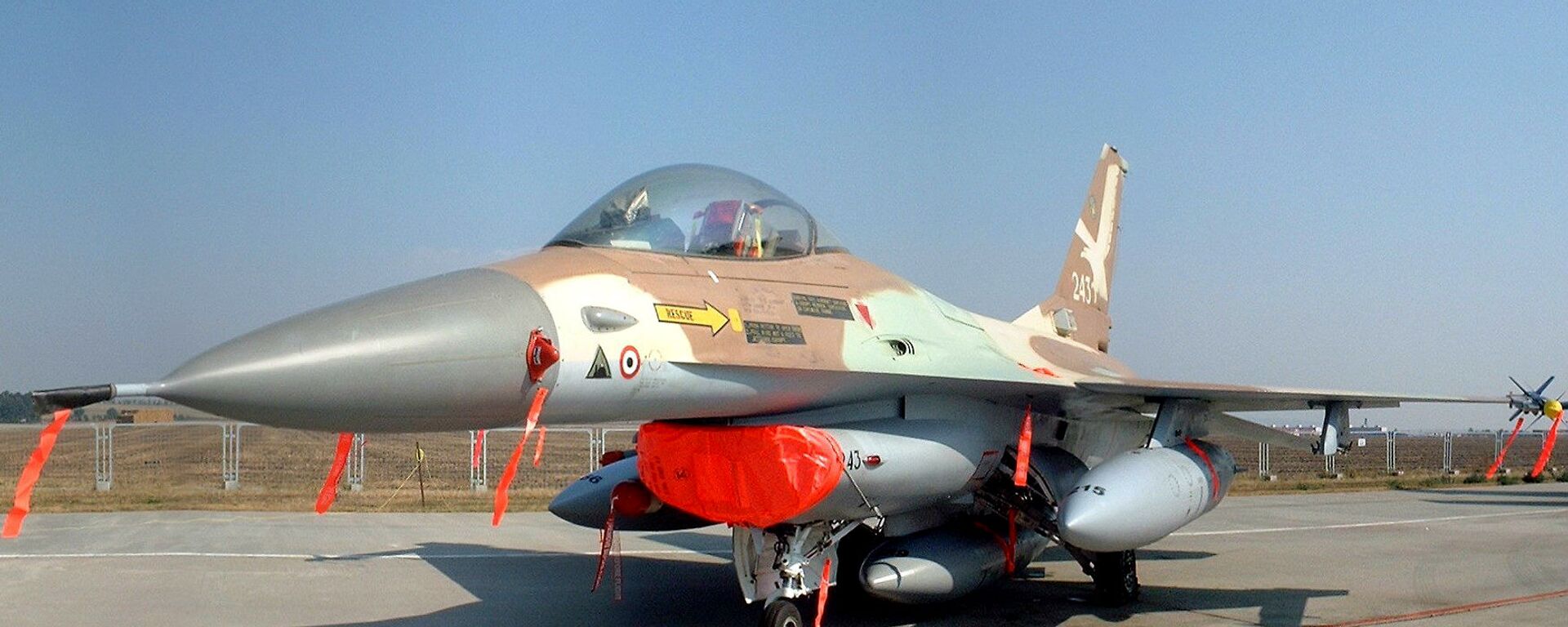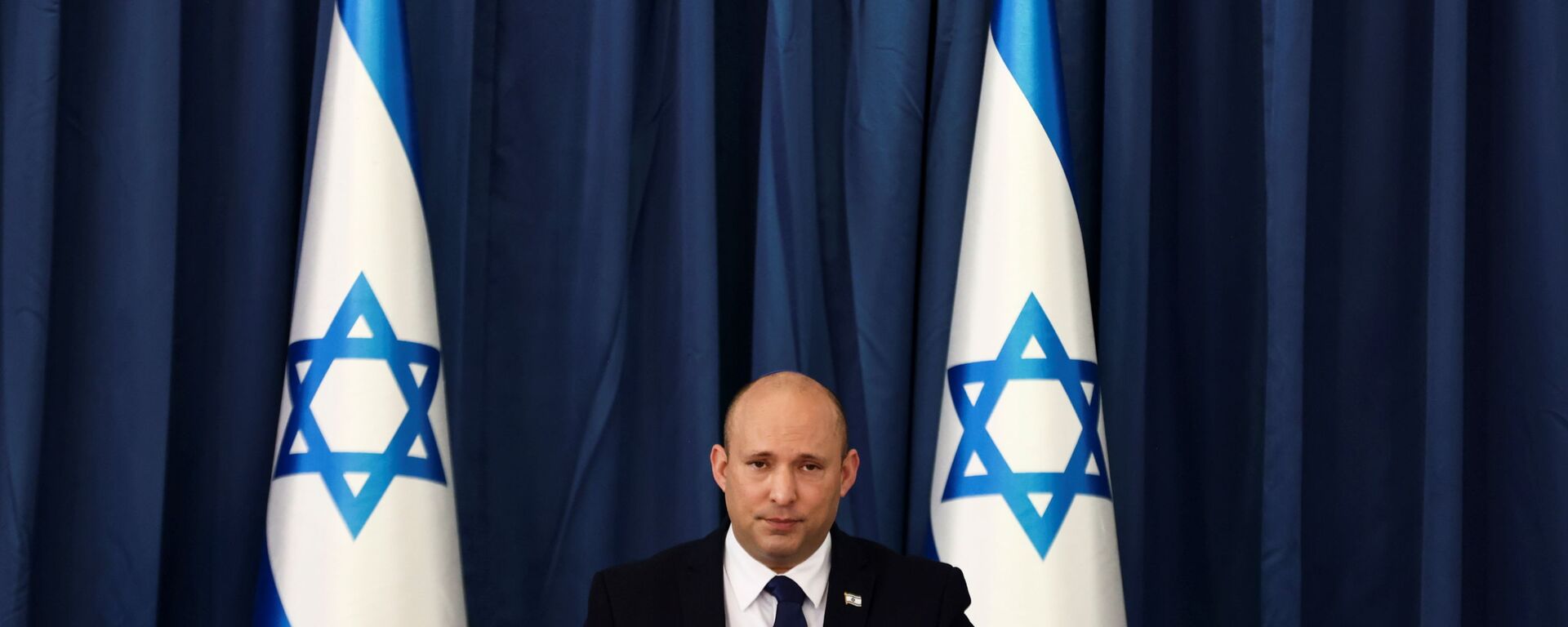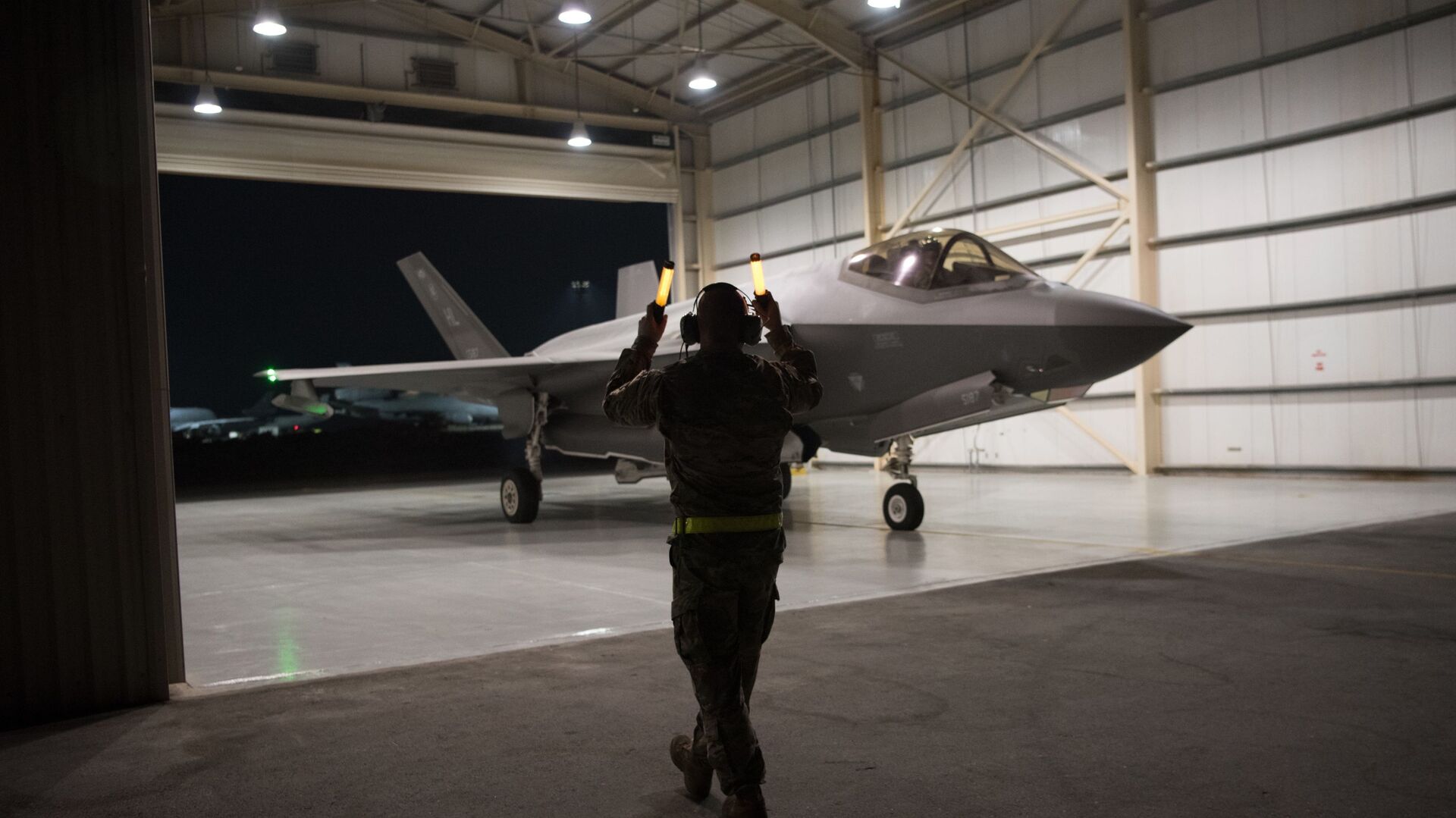https://sputnikglobe.com/20220111/israels-bennett-boasts-of-biggest-rearmament-effort-in-years-amid-iran-tensions-1092176241.html
Israel’s Bennett Boasts of Biggest Rearmament Effort in Years Amid Iran Tensions
Israel’s Bennett Boasts of Biggest Rearmament Effort in Years Amid Iran Tensions
Sputnik International
Late last year, Israel set aside a special $1.5 billion fund from the country’s $19.2 billion defence budget to prepare for possible strikes against Iran’s... 11.01.2022, Sputnik International
2022-01-11T10:45+0000
2022-01-11T10:45+0000
2023-01-15T17:25+0000
naftali bennett
america
israel
https://cdn1.img.sputnikglobe.com/img/07e5/03/05/1082267576_0:161:3067:1886_1920x0_80_0_0_73a463cae91153a771855a884db183ce.jpg
Israel is in the midst of the largest rearmament campaign in years, and is forced to ‘deal with’ threats posed by Iran and its proxies 24 hours a day, Prime Minister Naftali Bennett has said.“Iran tops our list of challenges. Iran is the head of an octopus that constantly threatens Israel on all its borders via its proxies and its tentacles,” the prime minister said. “We are dealing day and night with Iran, its malign activity, and its satellites. We are shifting to a concept of consistent offence and not just consistent defence,” he added.Despite serving as defence minister in the Netanyahu government between 2019 and 2020, Bennett has consistently criticized his predecessor for “undermining” Israeli national security, and has claimed that Netanyahu put the country’s military in a “tailspin.” After coming to power last year, the Bennett government increased the country’s defence budget to nearly 60 billion shekels (about $19.2 billion), with roughly $1.5 billion of that reserved for preparations for a possible military strike on Iran’s nuclear infrastructure.Israel’s military budget is partially subsidized by the United States, which provided the country with $3.8 billion in military aid in 2021, with total defence assistance to the country over the past seven decades reaching nearly $150 billion non-inflation-adjusted dollars.Tel Aviv and Tehran have been fierce regional adversaries since the Iranian Revolution of 1979, which saw the toppling of the pro-US Shah regime and the rise of an Islamic Republic. The two countries have repeatedly threatened to attack one another, with Israel also threatening preemptive strikes against Iran’s suspected nuclear weapons programme. Iran vocally denies that it’s pursuing nuclear weapons, or weapons of mass destruction of any kind, and has consistently criticized the international community for turning a blind eye to the Jewish State’s suspected nuclear arsenal. Tel Aviv neither confirms nor denies possessing nukes in a policy called "deliberate ambiguity." The country has also granted itself the self-proclaimed right to launch strikes to attack any nation it may suspect of seeking nuclear weapons.Last week, former Israeli deputy national security advisor Chuck Freilich warned that even if Israel did manage to successfully strike and destroy Iran’s nuclear facilities, the Iranians would be able to quickly rebuild and be certain to carry out potentially devastating strikes against Israeli cities. The “best of the bad options,” he suggested, would be a US return to the Joint Comprehensive Plan of Action nuclear deal.
https://sputnikglobe.com/20211026/israels-strike-plans-for-iran-could-take-more-than-a-year-to-be-fully-ready-paper-claims-1090207808.html
https://sputnikglobe.com/20220110/bennett-warns-israel-wont-be-bound-by-any-iran-nuclear-deal-will-reserve-freedom-of-action-1092150401.html
israel
Sputnik International
feedback@sputniknews.com
+74956456601
MIA „Rosiya Segodnya“
2022
News
en_EN
Sputnik International
feedback@sputniknews.com
+74956456601
MIA „Rosiya Segodnya“
Sputnik International
feedback@sputniknews.com
+74956456601
MIA „Rosiya Segodnya“
naftali bennett, america, israel
naftali bennett, america, israel
Israel’s Bennett Boasts of Biggest Rearmament Effort in Years Amid Iran Tensions
10:45 GMT 11.01.2022 (Updated: 17:25 GMT 15.01.2023) Late last year, Israel set aside a special $1.5 billion fund from the country’s $19.2 billion defence budget to prepare for possible strikes against Iran’s nuclear facilities. Tehran warned that Tel Aviv should instead set aside “tens of thousands of billions of dollars” to repair damage caused by Iran’s “shocking response” to any aggression.
Israel is in the midst of the largest rearmament campaign in years, and is forced to ‘deal with’ threats posed by Iran and its proxies 24 hours a day, Prime Minister Naftali Bennett has said.
“We are investing in security rearmament of the IDF and the entire defence establishment. I would say this was rearmament that we haven’t seen for years. This rearmament is important to our survival, and I am very glad about it and am determined to see it through quickly,” Bennett
said, speaking before the Knesset’s foreign affairs and defence committee.
“Iran tops our list of challenges. Iran is the head of an octopus that constantly threatens Israel on all its borders via its proxies and its tentacles,” the prime minister said. “We are dealing day and night with Iran, its malign activity, and its satellites. We are shifting to a concept of consistent offence and not just consistent defence,” he added.
Despite serving as defence minister in the Netanyahu government between 2019 and 2020, Bennett has consistently criticized his predecessor for “undermining” Israeli national security, and has claimed that Netanyahu put the country’s military in a “tailspin.” After coming to power last year, the Bennett government increased the country’s defence budget to nearly 60 billion shekels (about $19.2 billion), with roughly $1.5 billion of that reserved for preparations for a possible military strike on Iran’s nuclear infrastructure.

26 October 2021, 00:55 GMT
Israel’s military budget is partially subsidized by the United States, which provided the country with $3.8 billion in military aid in 2021, with total defence assistance to the country over the past seven decades reaching nearly $150 billion non-inflation-adjusted dollars.
Tel Aviv and Tehran have been fierce regional adversaries since the Iranian Revolution of 1979, which saw the toppling of the pro-US Shah regime and the rise of an Islamic Republic. The two countries have repeatedly threatened to attack one another, with Israel also threatening preemptive strikes against Iran’s suspected nuclear weapons programme. Iran vocally denies that it’s pursuing nuclear weapons, or weapons of mass destruction of any kind, and has consistently criticized the international community for turning a blind eye to the Jewish State’s suspected nuclear arsenal. Tel Aviv neither confirms nor denies possessing nukes in a policy called "deliberate ambiguity." The country has also granted itself the self-proclaimed right to launch strikes to attack any nation it may suspect of seeking nuclear weapons.
Last week, former Israeli deputy national security advisor Chuck Freilich
warned that even if Israel did manage to successfully strike and destroy Iran’s nuclear facilities, the Iranians would be able to quickly rebuild and be certain to carry out potentially devastating strikes against Israeli cities. The “best of the bad options,” he suggested, would be a US return to the Joint Comprehensive Plan of Action nuclear deal.

10 January 2022, 09:19 GMT





